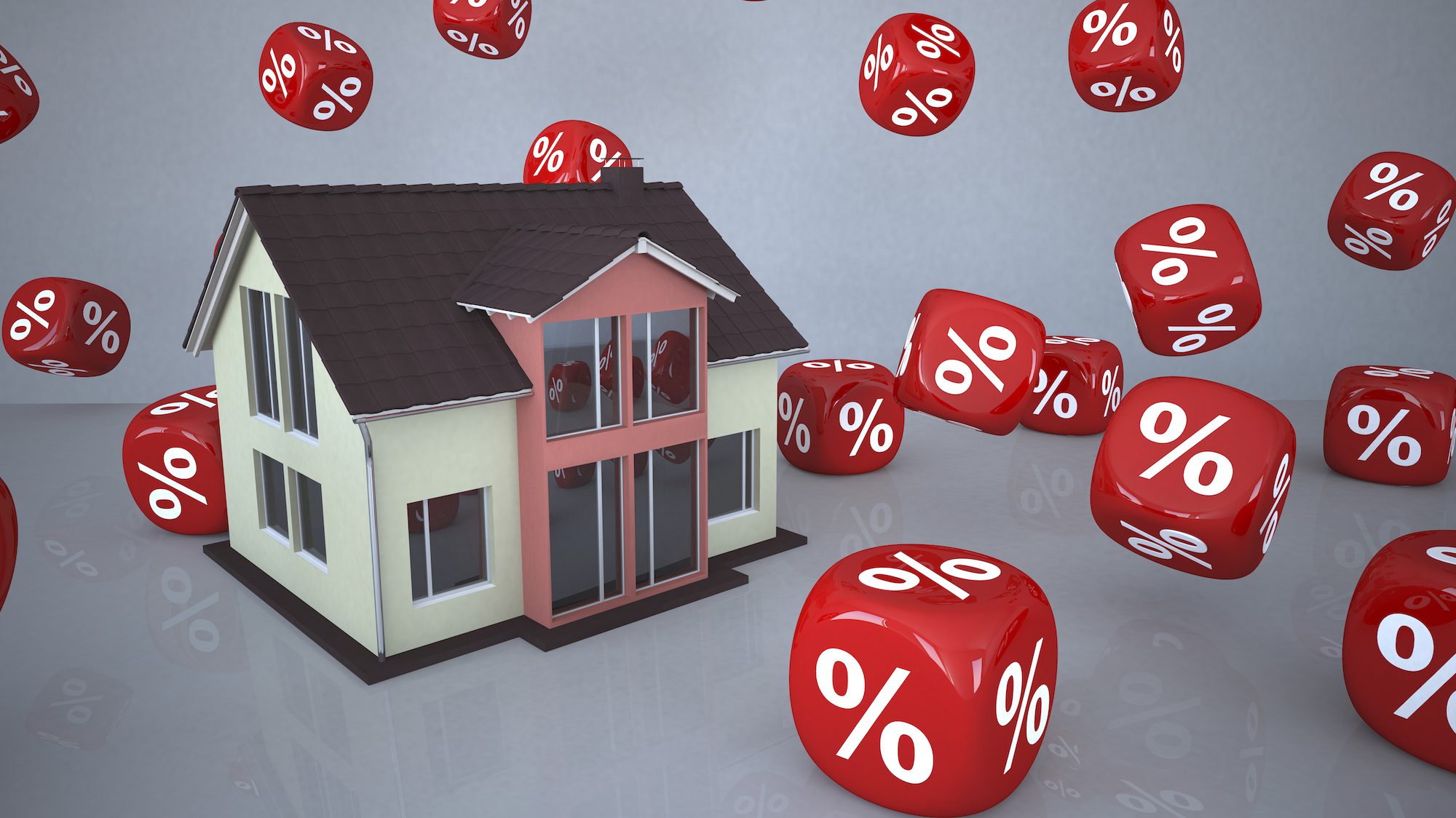
Westend61/Getty Images
The already scalding-hot housing market is likely to heat up even more. Mortgage interest rates continued their downward descent, hitting yet another record—largely thanks to the pandemic, and the resulting economic downturn, dragging on.
Rates fell to just 2.88% for 30-year, fixed-rate loans in the week ending Aug. 6, according to Freddie Mac. That’s the lowest rates have ever been since Freddie Mac began tracking them in 1971. They fell from 2.99% last week and are down from a higher 3.6% at the same time last year.
“The mortgage rates are really fueling the [housing] market this summer,” says George Ratiu, realtor.com®’s senior economist.
The low rates are likely to pull some prospective buyers off the sidelines. Meanwhile, the coronavirus has prompted many folks to seek out larger homes with bigger backyards.
“Buyers are anticipating an extended period of remote work, home schooling, and social distancing,” Ratiiu says.
Real estate experts believe there is room for rates to drop even further, into the 2.5% territory.
“Rates aren’t nearly as low as they would be were it not for lender capacity constraints,” says Matthew Graham, chief operating officer of Mortgage News Daily.
The flood of business has led many lenders to keep the rates artificially high, in order to stem some of the overwhelming demand.
“In other words, lenders are as busy as they possibly can be while still getting loans done.”
Mortgage rates are low, but not everyone will be able to lock them in
The first problem is that many borrowers will have a hard time locking in those low rates. In response to the recession and high unemployment, lenders have upped their requirements for granting a loan.
Many borrowers are only being approved if they have stellar credit, little debt, and sizable down payments.
The second challenge for those who do score a loan is finding the right property within their price range.
That’s no easy feat, since home list prices have shot up 9.4% in the week ending Aug. 1, according to realtor.com data. Those price gains are pushing upward despite the high unemployment and the economic recession roiling the nation.
The high prices are a result of the lack of inventory on the market, spurring bidding wars and offers over asking. The number of homes for sale is down by a whopping 35% compared to last year, when the nation was already in the throes of a housing shortage.
“Mortgage rates are fantastic if you can get a mortgage—and if you can actually find a home. That’s the kicker,” says Ratiu.
“Most sellers are also buyers, and they can’t find their trade-up homes.”
So they’re holding off on listing their properties, creating a bottleneck.
Why are rates so low?
Mortgage rates are typically determined by investors. Lenders don’t want to hold onto the loans they make, because that would mean they don’t have the money to make new loans.
Typically, they sell the loan, which is bundled into a collection of mortgage-backed securities, aka mortgage bonds, to investors in the secondary market.
Investors generally consider these securities, similar to U.S. Treasury bonds, safer than the stock market or other volatile investments. So when there is economic uncertainty, they’ll move their money over to bonds.
Mortgage rates have an inverse relationship with bond prices. When bond prices are high because demand for them is spiking, mortgage rates fall.
“Rates are reaching this new low because investors are worried about the high level of unemployment, about the uncertainty over the stimulus package in Congress, and of course, over the pandemic,” says Ratiu.
“They’re moving to relative safety of bonds, including mortgage bonds.”
The post Mortgage Rates Plummet to a New Record Low, Adding Fuel to the Housing Market appeared first on Real Estate News & Insights | realtor.com®.
source https://www.realtor.com/news/trends/mortgage-rates-plummet/
No comments:
Post a Comment